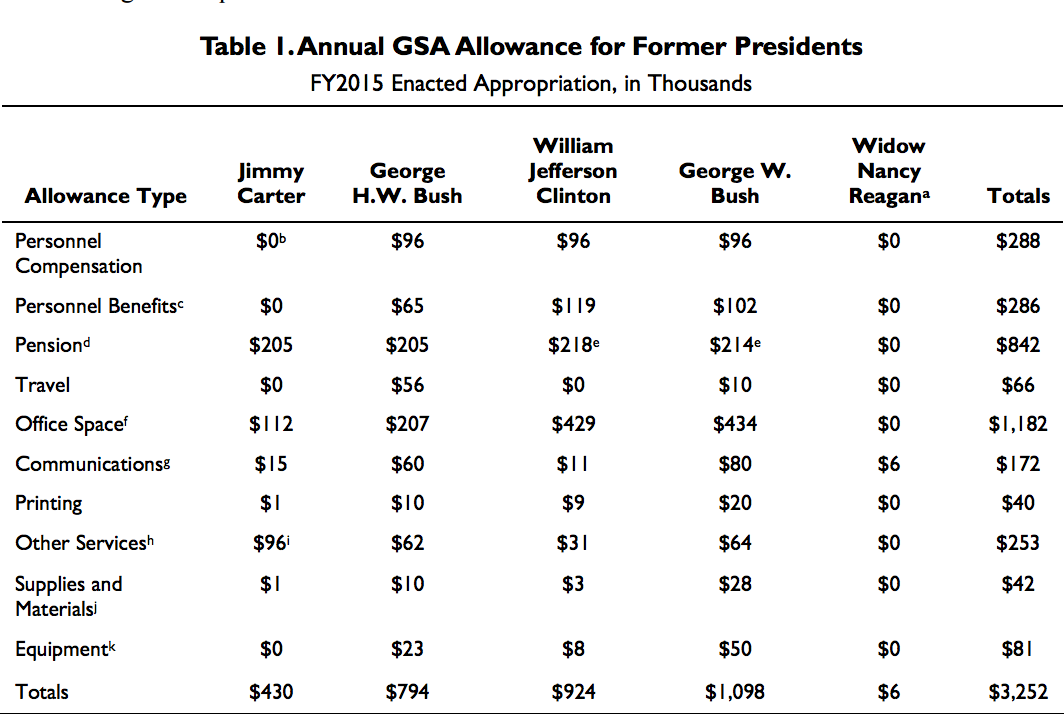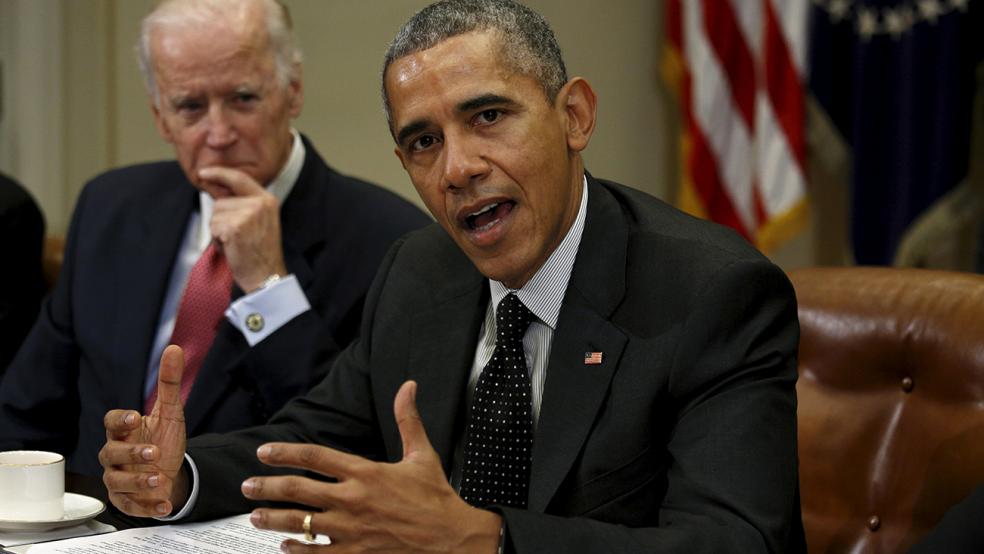President Obama vetoed a bill last week that would have limited the taxpayer money spent on expense accounts for former presidents.
The bill, titled the Presidential Allowance Modernization Act and sponsored by Rep. Jason Chaffetz (R-Utah), would have capped the allowances for travel, offices and staff at $200,000 a year and reduced those allowances by $1 for every dollar that a former president’s adjusted gross income exceeds $400,000.
Obama said he favors capping post-presidential expenses but vetoed the bill because it would immediately end salaries and benefits for presidential staffers, instead of providing a transition for those workers to move onto a different payroll. He also claimed the bill would interfere with the Secret Service’s ability to protect former presidents. Obama says he intends on working with Congress to change the bill.
Slideshow: 11 First Ladies Who Wielded Enormous Power
The chart below from the Congressional Research Service describes the costs to taxpayers of the four former presidents and one widow, Nancy Reagan, who were given pensions and benefits in fiscal year 2015. In total, taxpayers spent more than $3.2 million on the four former presidents — a tiny sum relative to the $3.7 trillion federal budget, but a healthy chuck of change to spend on people who can earn millions through speaking fees, book deals and other sources of incomes. The president’s fiscal 2017 budget requested an increase to $3.865 million to cover the costs of adding Obama as a former president.
Of the former Commanders-in-Chief, George W. Bush had the highest 2015 expenses at $1,098,000, including $434,000 for office space and $198,000 in staff salary and benefits. Bill Clinton was next at $924,000, including $429,000 for office space and $215,000 for salaries and benefits. Jimmy Carter cost taxpayers the least, at $430,000. Nancy Reagan turned down the $20,000 pension available to a president’s widow.

The costs don’t include Secret Service protection, promised to any ex-president and spouse for life and to their children until age 16. They also don’t include costs of the Presidential Transition Act, which provides services and facilities for seven months after leaving office. The White House’s fiscal 2017 budget requested $9.5 million for costs related to Obama’s transition out of office, including $1 million for briefing personnel of the incoming administration.
Related: The Divided America That Obama the Unifier Leaves Behind
The legislation that allowed for pensions and other benefits to presidents after they left office was enacted in 1958, triggered by Harry S. Truman’s public financial struggles after leaving office in 1953. Although it was enacted so that former presidents wouldn’t be forced to “write and lecture to gain a livelihood in their final days,” recent presidents have chosen to do just that.
Jimmy Carter has profited from his 29 published books. Ronald Reagan reportedly made $2 million, months after leaving office, on a speaking tour in Japan. George H.W. Bush has written 10 autobiographies and memoirs. In the decade after leaving office, Bill Clinton made $75.6 million, averaging $181,000 per event. George W. Bush garnered $15 million between 2009 and 2011. Bill and Hillary Clinton gave a combined 729 speeches, earning more than $153 million, between when Bill left office and Hillary launched her campaign in 2015.




